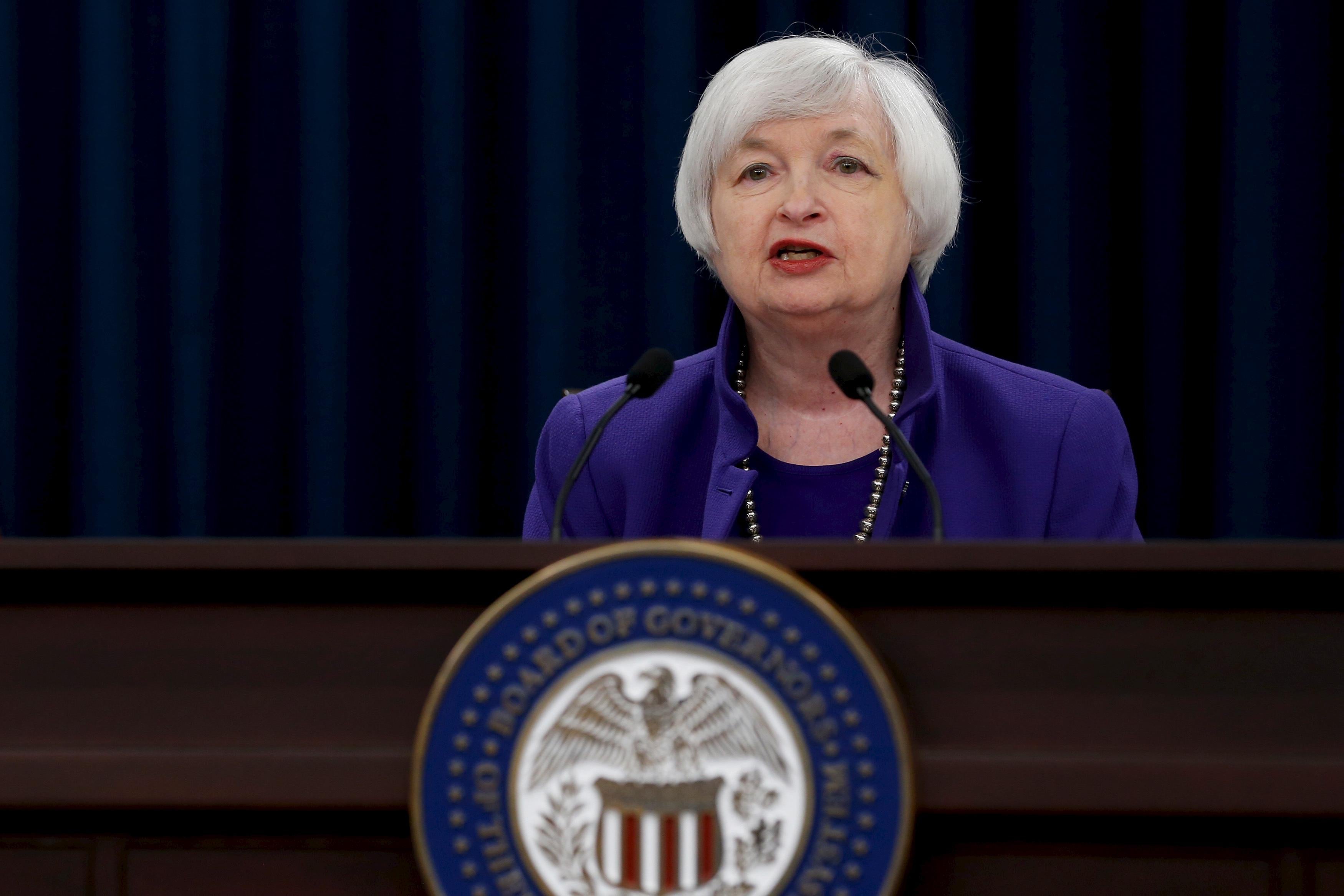On Wednesday, the Federal Reserve finally announced that it would raise interest rates up from near zero for the first time in seven years, a move that has been both widely expected and controversial. With inflation nearly nonexistent and the job market still soft, many have wondered why the central bank would increase the cost of borrowing and risk slowing down growth. So, unsurprisingly, the first question reporters lobbed at Fed Chair Janet Yellen during her press conference today was: Why now?
Yellen had a few answers, most of which seemed to be geared at reassuring the public that the Fed is trying its best to avoid driving the economy into a ditch. The labor market has been improving and the central bank thinks inflation could be headed toward its goal of 2 percent in the “medium term,” meaning the next several years. The bank wants to move rates up slowly and gradually so that it can watch how financial markets react and make adjustments accordingly, which is easier to do if it starts doing this early, since monetary policy works with a delay. “I think it’s important not to overblow the significance of this first move,” Yellen added. “It’s only 25 basis points. Monetary policy remains accommodative.” That’s central banker for: Interest rates are still really damn low. Chill.
Later on, Yellen made it clear that she expected the job market to keep improving, even as rates edged up. She also argued that hiking rates now might make less likely that the bank will trigger a recession in the future. When central banks do create downturns, she explained, it has typically been because “they have begun too late to tighten policy and they’ve allowed inflation to get out of control. And at that point they’ve had to tighten policy very abruptly and very substantially. And it’s caused a downturn. And the downturn has served to lower inflation.
“It is because we don’t want to cause a recession through that type of dynamic at some future date that it is prudent to begin early and gradually.”
Prudent. Early. Gradually. We don’t want to cause a recession. Those were pretty much the key phrases Wednesday.
So that’s Yellen’s answer. But there’s another interesting theory about why Yellen, who was known as a monetary policy dove when she was appointed Fed chair, has chosen to start tightening when the economy still doesn’t seem to be at full health. It comes from Vincent Reinhart, a Fed veteran and former chief U.S. economist at Morgan Stanley now at the American Enterprise Institute. The gist: Yellen is doing a bit of political maneuvering. Reinhart writes:
Hiking the funds rate, even as economic growth disappoints and inflation remains subdued, buys Yellen the credibility with her colleagues and market participants to subsequently tighten slowly. That is, Yellen positions herself now as a conservative central banker to ensure that she can be a compassionate one later by allowing Fed policy to remain considerably accommodative for a considerable time.
The thing to remember here is that the Federal Open Market Committee, the Fed’s decision-making body on interest rates, has 12 members and operates by majority vote. Yellen has a powerful voice as chair, but nonetheless has to convince her colleagues, some of whom are a bit paranoid about inflation, to follow her lead. By showing she has the willingness to inch rates up now, she may be buying the ability to keep rates relatively low for the foreseeable future and stop the FOMC from doing anything rash down the line.
Again, Janet Yellen really, really doesn’t want the Fed to cause a recession. Hiking rates a little now might be part her plan to make sure that doesn’t happen.
